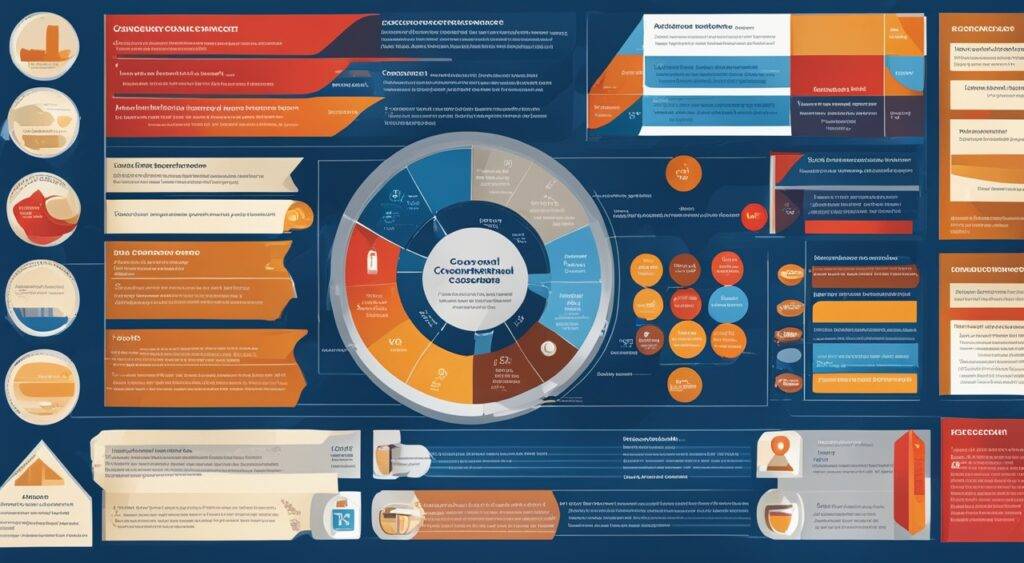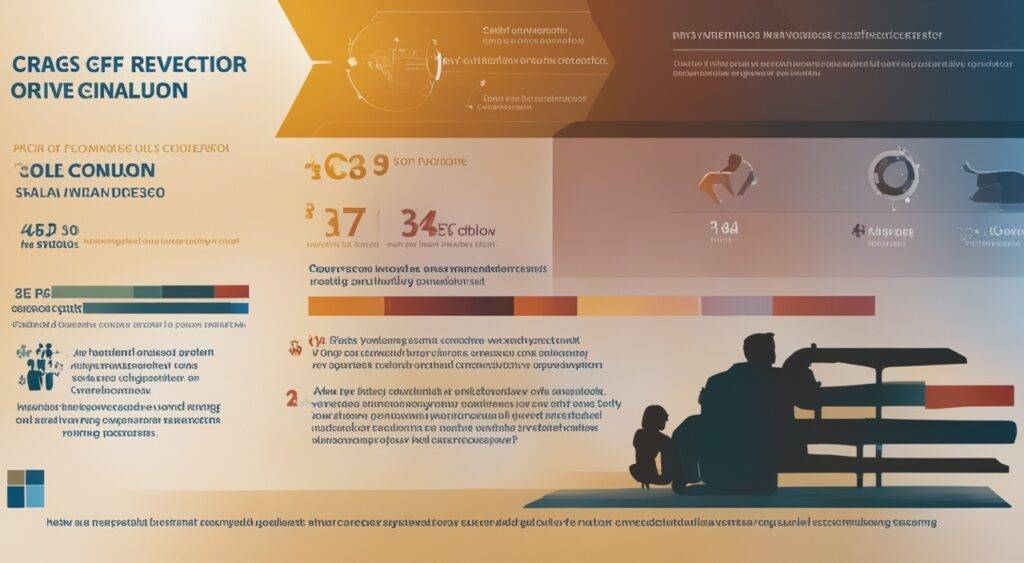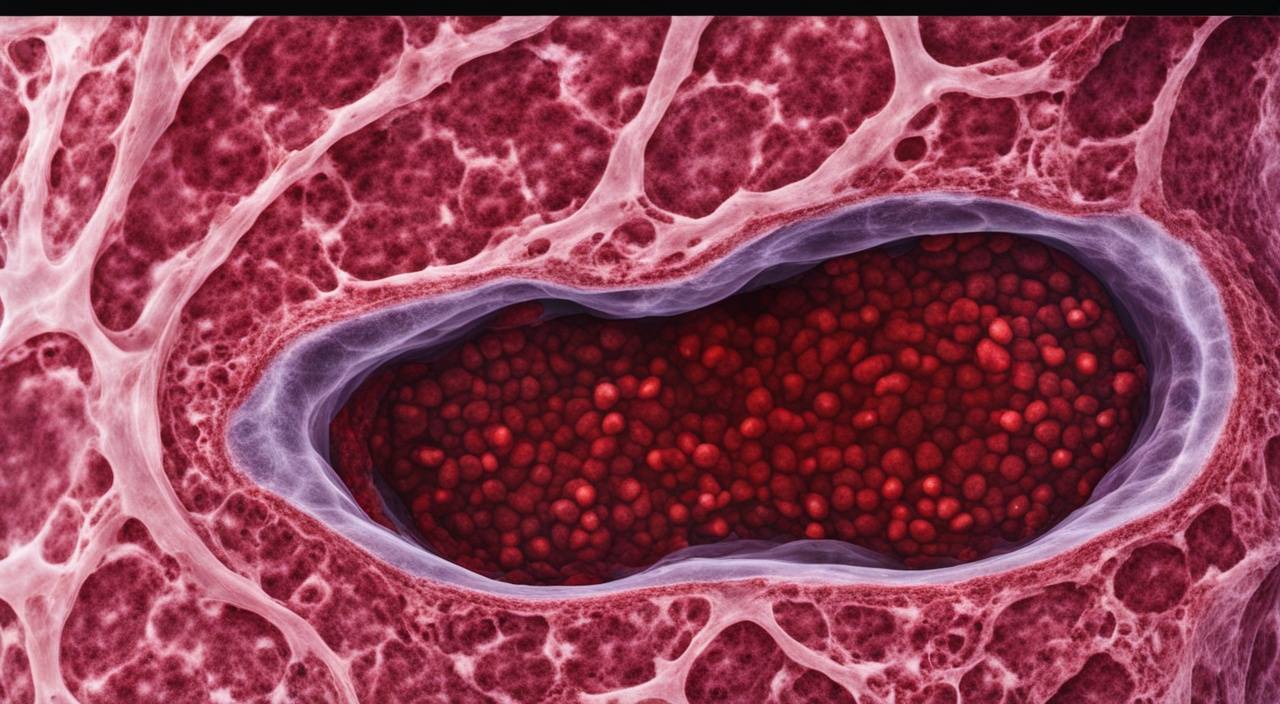Do you stress that adjustments of your inside propensities may be something other than passing issues? Colorectal Cancer growth is a typical kind of stomach Cancer that can begin without showing any side effects. For this reason, keeping mindful of your well-being is so important.1
Colorectal Cancer positions as the third most often analyzed malignant growth in the U.S. It for the most part begins when unusual developments, or polyps, show up in the colon. Regardless of whether most polyps are non-dangerous, some can advance into colorectal Cancer growth over time.1
The uplifting news is this Cancer can as a rule be dealt with effectively. It very well may be handled with a medical procedure, chemo, radiation, designated medications, and immunotherapy. But, finding it early by getting routine screenings is critical. Along these lines, specialists can eliminate any polyps that could transform into cancer.1
If you’re concerned about colorectal cancer, knowing its signs and how to bring down your risk is important. We’ll talk about what to look for and what steps you can take to safeguard your well-being
Key Takeaways
- Colorectal Cancer is the third most normal malignant growth analyzed in the US.
- Beginning phase colorectal disease frequently has no side effects, making customary screening urgent.
- Risk factors incorporate age, race, family ancestry, way of life factors, and certain ailments.
- Treatment options incorporate a medical procedure, chemotherapy, radiation treatment, designated treatment, and immunotherapy.
- Keeping a sound way of life and going through suggested screening can assist with forestalling colorectal cancer growth.
Understanding Colorectal Cancer
Colorectal cancer growth incorporates both colon and rectal cancer. A kind of stomach-related framework malignant growth for the most part begins in the enormous intestine.1 This sickness frequently develops from non-dangerous polyps in the colon. A few polyps can change into adenocarcinomas, the most widely recognized colorectal malignant growth type.1 Risk factors incorporate specific hereditary circumstances, fiery inside sicknesses, and a certain way of life choices.1
What is Colorectal Cancer?
Colorectal cancer starts in the colon or rectum. The colon is the initial segment of the internal organ, while the rectum is the last part close to the anus.1 The infection generally begins with non-destructive polyps on the inward covering of the colon or rectum. After some time, a portion of these polyps can become cancerous.1
Colon Cancer vs. Rectal Cancer
Colon cancer and rectal cancer growth, under the umbrella of colorectal malignant growth, have contrasts. Colon cancer is tracked down in the upper piece of the digestive organ, while rectal cancer growth influences the lower part close to the anus. 1 The therapy for rectal malignant growth frequently includes a blend of a medical procedure, radiation, and chemotherapy to eliminate the malignant growth.
Types of Colorectal Cancer
The most well-known sort of colorectal malignant growth is adenocarcinoma. Other more uncommon sorts incorporate neuroendocrine cancers, gastrointestinal stromal cancers, and lymphomas. Certain genetic circumstances and incendiary entrail illnesses can likewise raise the gamble of colorectal cancer.1
Being familiar with the different sorts and Risk factors for colorectal malignant growth is vital. It assists with compelling screening, early detection, and customized medicines. Customary colonoscopy evaluation for grown-ups is firmly prescribed to find and eliminate polyps before they become cancerous.1
Symptoms of Colorectal Cancer
Colorectal cancer might not show any symptoms at first. But as it grows, you might notice some signs..1 It’s very important to know the early and late symptoms. This helps in getting treatment early and making it more effective.
Early Warning Signs
Early signs can be seeing blood in your stool. You might also have diarrhea or constipation that lasts longer than a few days. Then there’s the stomach pain or feeling uncomfortable and losing weight for no reason.
If you see these signs, they could mean it’s time to see a doctor.1 Even if it might not be cancer, getting checked quickly is wise.
Advanced Symptoms
Any worsening or severe symptoms could mean the cancer has advanced. For example, if it impedes your entrail or you have a great deal of rectal dying. Disease moving to different pieces of your body could appear as jaundice, breathing issues, and an augmented liver.
If you notice any large changes in your stomach or well-being, see a specialist soon. Finding it early greatly helps in treating and getting better.
Causes and Risk Factors

The specific reason for colorectal cancer isn’t completely known. In any case, we do know a few factors that can make it bound to happen.1 For example, polyps on the internal colon lining raise the risk. Assuming left untreated, a few polyps can transform into cancer.1 Certain acquired conditions, such as familial adenomatous polyposis and Lynch syndrome, likewise contribute in some cases.1,2
An eating routine low in fiber and high in fat, an absence of activity, corpulence, and weighty drinking are connected to more risk.2 Progressing in years and your race can likewise play a part.2 Provocative entrail illnesses and an individual or family background of colorectal malignant growth can up the risk too.1,2
Polyps and Precancerous Conditions
Polyps are little developments that can frame the colon or rectum lining. They’re a major risk for cancer.1 Not all polyps are hazardous, however some, as adenomatous polyps, can turn carcinogenic with time.1
That is the reason ordinary screenings, including colonoscopies, are vital. They assist in finding and eliminating these hazardous polyps before they transform into disease.
Genetic Factors
Having certain genetic conditions can greatly up your risk of colorectal cancer.1,2 For example, with familial adenomatous polyposis or Lynch syndrome, you might form many polyps. This makes cancer more likely.2
Even without known genetic problems, a strong family history of colorectal cancer can still mean high risk.1,2
Lifestyle and Diet
How you live and what you eat matter too. Certain diets and habits can up the chance of getting colorectal cancer.2 Enjoying red and processed meats cooked over high heat is one such habit.2
Being overweight, inactive, smoking, or drinking heavily also poses a higher risk.2
Other Risk Factors
Other factors that might increase your colorectal cancer risk.1,2 These include having certain bowel diseases, a history of colorectal cancer or polyps, and undergoing abdominal radiation for other cancers.1
It’s essential to know these risks. This knowledge can lead to more screening and better targeted prevention.1,2 By changing what we can, and seeing the doctor regularly, we can lower our risk of this serious illness.
Diagnosis and Staging
Colorectal cancer can be found with several screening tests and diagnostic steps. Tests like colonoscopy check for and take out precancerous polyps3. Other tests include checking stool and CT scans.3 If cancer seems likely, the doctor might do a biopsy, endoscopy, and more tests.
Screening Tests
It’s key to screen for colorectal cancer early because symptoms aren’t clear at first.3 For example, a colonoscopy can spot and remove these dangerous polyps before they turn into cancer.3
Diagnostic Procedures
After someone is diagnosed with colorectal cancer, more tests pin down how serious it is. These might include looking inside with a tiny camera, taking tissue samples, and different X-rays in the belly, pelvis, and chest.4
Staging of Colorectal Cancer
Staging colorectal cancer helps decide on the best treatment and see the outlook. Doctors figure out the stage by looking at the tumor size, how many lymph nodes are involved, and if cancer has spread to other parts of the body.5 Staging goes from 0, mostly found in the colon lining, to 4, where it’s invaded other organs like the liver.4
The TNM system gives a detailed stage shape for doctors to create a personalized treatment plan.5 Knowing the precise stage gives a clearer picture of what to expect from treatment outcomes.5
| Stage | Description |
|---|---|
| 0 | Cancer is found in just the colon’s or rectum’s inner lining.5 |
| I | Cancer reaches the deeper walls of the colon or rectum but hasn’t hit the lymph nodes or spread further.5 |
| II | Cancer goes through the colon or rectum wall but stays out of the lymph nodes.5 |
| III | Cancer gets into nearby lymph nodes but not farther organs.5 |
| IV | Cancer spreads to distant organs, such as the liver or lungs.4 |
Treatment Options

There are several ways to treat colorectal cancer. Each method has its benefits and approach. The main treatments include surgery, chemotherapy, radiation therapy, targeted therapy, and immunotherapy.6
Surgery
For early-stage colorectal cancer, surgery is often the first choice. Surgeons may remove part of the colon or rectum. Or they might create a stoma if the cancer is advanced and has spread.4
Chemotherapy
Medications that kill cancer cells are called chemotherapy. It’s used with other treatments like surgery or radiation to prevent cancer from coming back.4
Radiation Therapy
High-energy radiation can shrink a tumor before surgery. It can also kill remaining cancer cells after surgery. In some cases, it’s used to help with symptoms if surgery isn’t possible.4
Targeted Therapy
Targeted therapies attack specific pathways that cancer cells use to grow and spread. They are helpful for advanced cancers. They are often used with chemotherapy.4
Immunotherapy
Immunotherapy uses our immune system to fight cancer. It’s becoming more common for advanced colorectal cancer. It boosts our body’s ability to fight the cancer cells.4
The right treatment depends on the cancer’s stage, the patient’s health, and their choices. Doctors will create a plan that meets the patient’s needs and goals.4
Colorectal Cancer Prevention

Getting checked consistently is critical to both halting and finding colorectal malignant growth early.7 The American Disease Society recommends grown-ups at ordinary gambling these take a look at beginning at 45. These incorporate tests like the waste mysterious blood test, adaptable sigmoidoscopy, and colonoscopy.7
Regular Screening
Colorectal cancer growth is the second greatest reason for disease passing in the US,7 however it tends to be prevented.7 By beginning screenings at 45, you can catch and eliminate polyps before they become cancer.7 It generally takes polyps 10-15 years to transform into cancer,7 so finding them early is vital.
Lifestyle Changes
Besides check-ups, living healthily also cuts your cancer risk.7 Diet, exercise, and staying a healthy weight are big factors. So is not smoking, cutting back on alcohol, and possibly taking aspirin each day.7 Eating lots of veggies, fruits, and whole grains while avoiding a lot of red and processed meats can help. So can being active often.8
Preventive Medications
If you’re at higher risk for example, with a family ancestry, your primary care physician could propose aspirin.7 Taking it routinely for quite a long time has been connected to less colorectal cancer.9 Nonetheless, the upsides and downsides of this sort of medication ought to be examined by a specialist.
Living with Colorectal Cancer

Living with colorectal cancer means you need ongoing care. You’ll have regular check-ups and tests such as colonoscopies. These keep an eye on the cancer and look for any new signs of it10. It’s also important to manage any treatment side effects, like stomach problems, being tired, or feeling pain, to keep your life as good as possible.
Follow-up Care
After your main treatment, how often you see your doctor depends on the cancer stage and the chances it might come back10. For a year after surgery, most people will need a colonoscopy. After that, it could be every 3-5 years, depending on the results10. If you have rectal cancer and a type of surgery called transanal excision, you might need a proctoscopy every 3-6 months at first. Then, it could be every 6 months for a bit10. For some, CT scans are essential, maybe moving to once a year after the first few years10. Also, getting blood tests for markers like CEA every 3 to 6 months early on is common, slowing to every 6 months later10.
Managing Side Effects
Coping with colorectal cancer treatment side effects is key to a better life. Doctors can help you find ways to handle issues like stomach troubles, feeling tired or pain. This can improve how you feel every day.
Emotional Support
Getting support from family, friends, health professionals, or groups is very important. It helps you deal with the tough both physical and emotional bits of having cancer. Finding help with mental health, talking to someone, or joining others who have been through it can make a big difference for survivors10.
Colorectal Cancer Research
Experts work hard to understand, find, and treat colorectal cancer better. They have made big strides. For example, they now have tests that find cancer more easily, like liquid biopsies. They’re also using targeted therapies and immunotherapies more in treatment.11
Latest Advances
Around 5% of colorectal disease cases are connected to Lynch syndrome, which is an issue with fixing DNA.12 A unique hereditary component, MSI-H, is in around 15% of patients for certain phases of colorectal malignant growth and around 5% with another stage.12 Lynch condition malignant growth has a ton of transformations that can be focused on by immunotherapies.12 Safe designated spot inhibitors are presently being utilized to treat progressed colorectal tumors in these patients.12
Encorafenib (Braftovi) is a medication that currently focuses on a protein called BRAF in the treatment of some colorectal cancers.12 It’s utilized alongside cetuximab in grown-ups with explicit sorts of colorectal cancer growth that have BRAF mutations.12 There’s likewise progress in utilizing fluid biopsies to follow disease through DNA and different materials in real fluids.12 In 2023, the FDA supported another therapy for cutting-edge colorectal tumors with an excess of HER2, consolidating tucatinib and trastuzumab.12
Clinical Trials
One study, called COMMIT, is seeing if adding atezolizumab to chemo helps certain colorectal cancer patients. It’s intended for those with a DNA fix problem..12 Another preliminary, SOLARIS, is adding nutrient D3 to chemo with bevacizumab for those with malignant growth that has spread.12 Scientists found that checking blood for cancer DNA could assist with finding who needs greater therapy after surgery.12 The NCI is likewise taking a gander at what different medical care levels mean for choices about getting evaluated for colorectal cancer.12
There are many examinations attempting to sort out why individuals get colorectal disease, to prevent it from happening..11 Some research is investigating whether certain eating regimens, enhancements, or medications could cut the risk of this cancer..11 Ibuprofen and comparable medications could assist with bringing down the risk, however, they can have awful side effects.11 Doctors are also working on new tests to catch colorectal cancer early and sort out the most ideal ways to check for it.11
Scientists need to know how colorectal malignant growths vary in light of changes in their qualities and proteins.11 They frequently test for these progressions to assist with settling on the best treatments.11 Utilizing fluid biopsies to find disease in the blood is one more area of research.11
There’s a lot of work in making surgery for colorectal cancer better, including some operations done through the anus without cutting the skin.11 They’re looking at how to save organs and the best time to do surgery after chemo for rectal cancer.11 New treatments like CRS and HIPEC are giving hope for colorectal cancer that has spread to the peritoneum.11 HAIC is a new approach for liver cancer that can’t be removed surgically.
Chemotherapy is still very important in treating colorectal cancer. Trials are testing new drugs and combos, including radiation therapy, targeted therapy, and immunotherapy.11 Researchers are also looking into drugs that target specific DNA mutations in advanced colorectal cancer.11 They aim to reduce the bad effects of chemo and find new ways to treat them.11
Colorectal Cancer Statistics
Colorectal cancer ranks third in new cancer cases in the U.S. For 2021, about 104,270 new cases are expected. It’s also the third main cause of cancer death, leading to over 52,000 deaths each year. But, the survival rate over five years is getting better, hitting around 65% for all stages.13 This progress is due to more people getting screened and better treatments. The chance of survival depends a lot on when the cancer is found. Early-stage cancers have a much higher survival rate than those found late.
Globally, colorectal cancer is the third most common kind. It makes up about 10% of all cancer cases. Plus, it’s the second biggest cause of cancer death around the world. Most cases happen in people over 50. In 2020, there were over 1.9 million new cases and more than 930,000 deaths worldwide. By 2040, experts predict we’ll see even more cases and deaths, a 63% and 73% increase, respectively.14
In countries with high incomes, there’s been a drop in the number of colorectal cancer cases. This decline is thanks to screening programs. But, the rates can differ depending on where you are. For example, Europe, Australia, and New Zealand have the highest number of new cases. However, Eastern Europe has the highest death rates. Despite these efforts, in 2020, there were still over 1.9 million new cases and 930,000 deaths worldwide.14
Screening for colorectal cancer is key to lowering both new cases and deaths. It helps find and remove growths that could become cancer early. Cancers found at an early stage have a better chance of survival. Along with regular screenings, changes in lifestyle, quick diagnosis, the right treatment, and follow-up care can all help improve how well someone does and their quality of life.14
Conclusion
My journey with colorectal cancer has shown me how much we’ve advanced. Even though it’s still a big challenge, people’s chances are getting better.15 We’re doing this by knowing more, checking often, and thanks to the hard work of many in medicine.
Knowing the signs, who it affects, and how to handle it, can help us stay safe.16 Getting checked regularly, like through a colonoscopy, is key to catching it early. Then, getting better is more possible with new treatments.
We’re hopeful for better days ahead fighting colorectal cancer.15 With more research and tests, we can do even more. And, together, we aim to keep improving lives and push towards preventing this disease altogether.
FAQ
What is colorectal cancer?
Colorectal cancer starts in the colon or rectum. The colon is part of the large intestine. It’s the first and longest part. The rectum comes next, near the anus. This cancer often begins as polyps, which are small clumps of cells inside the colon.
What are the different types of colorectal cancer?
Adenocarcinoma is the most common type, making up most cases. But there are also uncommon types, like carcinoid tumors, GISTs, and lymphomas.
What are the early warning signs of colorectal cancer?
In its early stages, colorectal cancer might not show symptoms. But you should watch for blood in your stool, changes in how often you go to the bathroom, belly pain, or if you lose weight without trying.
What are the risk factors for colorectal cancer?
How you live and your family history can increase your risk. So can eating a diet low in fiber and high in fat, and not getting enough exercise. Also, some diseases and having had colorectal cancer before are risk factors.
How is colorectal cancer diagnosed and staged?
Doctors can find colorectal cancer with tests like colonoscopy. Then they use biopsies and scans to learn more. This information helps them plan the best treatment.
What are the main treatment options for colorectal cancer?
Treatment might involve surgery, chemotherapy, radiation, targeted therapy, or immunotherapy. The plan depends on how far the cancer has spread and its type.
How can colorectal cancer be prevented?
Getting regular check-ups, like colonoscopies, can catch cancer early or prevent it. Living healthy, by eating well, exercising, and cutting back on alcohol and tobacco, also lowers your risk.
What is the importance of follow-up care for colorectal cancer patients?
It’s crucial to keep up with check-ups and tests after colorectal cancer treatment. This care watches for the cancer’s return and helps manage treatment’s side effects, keeping your life as good as possible.
What are some of the latest advancements in colorectal cancer research?
There are new tests that find cancer sooner and better treatments. Liquid biopsies and personalized therapies are some of the newest tools in the fight against colorectal cancer.
What are the current statistics on colorectal cancer in the United States?
Colorectal cancer ranks third for new diagnoses and third for cancer deaths in the US. There will be about 104,270 new cases in 2021. Over 52,000 people will die from it. Yet, the odds of surviving 5 years have been getting better because of more screenings and better treatments.
Source Links
- https://www.mayoclinic.org/diseases-conditions/colon-cancer/symptoms-causes/syc-20353669
- https://www.cancer.org/cancer/types/colon-rectal-cancer/causes-risks-prevention/risk-factors.html
- https://www.hopkinsmedicine.org/health/conditions-and-diseases/colon-cancer/colon-cancer-diagnosis-and-staging
- https://www.mayoclinic.org/diseases-conditions/colon-cancer/diagnosis-treatment/drc-20353674
- https://www.cancer.org/cancer/types/colon-rectal-cancer/detection-diagnosis-staging/staged.html
- https://www.cancer.gov/types/colorectal/patient/colon-treatment-pdq
- https://www.ucsfhealth.org/education/colorectal-cancer-prevention-and-screening
- https://www.cancer.org/cancer/types/colon-rectal-cancer/causes-risks-prevention/prevention.html
- https://www.cancer.gov/types/colorectal/patient/colorectal-prevention-pdq
- https://www.cancer.org/cancer/types/colon-rectal-cancer/after-treatment/living.html
- https://www.cancer.org/cancer/types/colon-rectal-cancer/about/new-research.html
- https://www.cancer.gov/types/colorectal/research
- https://seer.cancer.gov/statfacts/html/colorect.html
- https://www.who.int/news-room/fact-sheets/detail/colorectal-cancer
- https://www.ncbi.nlm.nih.gov/books/NBK586003/
- https://fascrs.org/patients/diseases-and-conditions/a-z/colon-cancer-expanded-version

